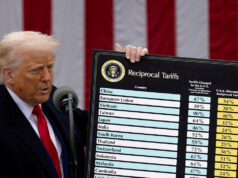House approves real property valuation bill on third reading
THE House of Representatives on Monday approved on third and final reading Package three of the Comprehensive Tax Reform Program (CTRP), the bill that will centralize the valuation and assessment of real property.
Voting 224 in the affirmative, seven in the negative and one abstention, the chamber passed House Bill 4664, which if signed into law will become the Real Property Valuation and Assessment Reform Act.
Representative Edcel C. Lagman of Albay’s first district said the bill features protections for owners of residential lots and for property owners affected by calamities.
Mr. Lagman added that amendments to the bill regulate the authority of the Secretary of Finance to review, approve or reject schedules of market values.
Section 12 provides that “all real properties, whether taxable or exempt, shall be valued or appraised based on prevailing market values in the locality where the property is situated.”
The bill also authorizes the Secretary of Finance to approve the Schedule of Market Values prepared by provincial and city assessors.
The Real Property Valuation and Assessment Reform Act is one of the priority bills that President Rodrigo R. Duterte outlined in his 2019 State of the Nation Address (SONA).
There are a total of four packages under the CTRP. Republic Act No. 10963 or Tax Reform for Acceleration and Inclusion (TRAIN) Law effectively reduced personal income taxes by amending the tax tables while Republic Act No. 1123 or the Tax Amnesty Act hopes to settle arrears owed by delinquent taxpayers.
Package two of the CTRP includes the proposed Corporate Income Tax and Incentives Rationalization Act which seeks to gradually lower the corporate income tax rate from 30% to 20%.
Package 2+ on the other hand, proposes to reform sin taxes to generate additional revenue for Universal Health Care (UHC).
Package four of the CTRP includes the Passive Income and Financial Intermediary Taxation Act which seeks to simplify the taxation of passive income and financial instruments.
All these bills have passed in the House but remain pending in the Senate. — Genshen L. Espedido



